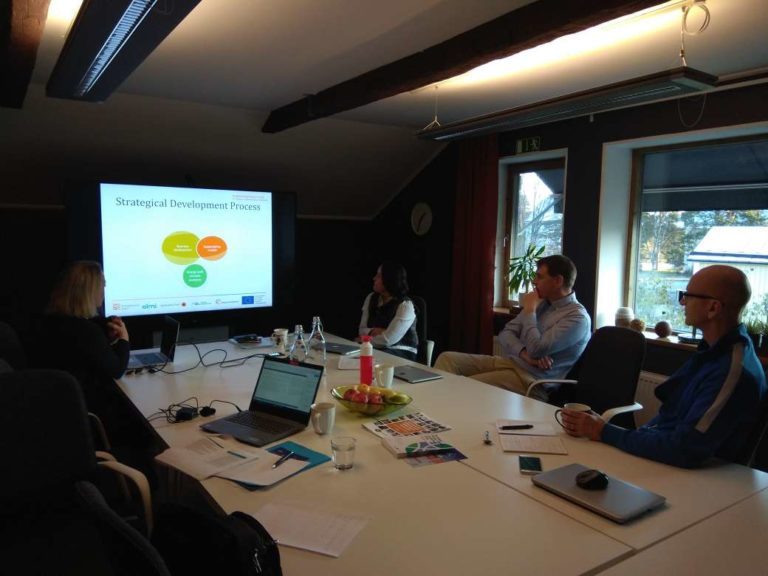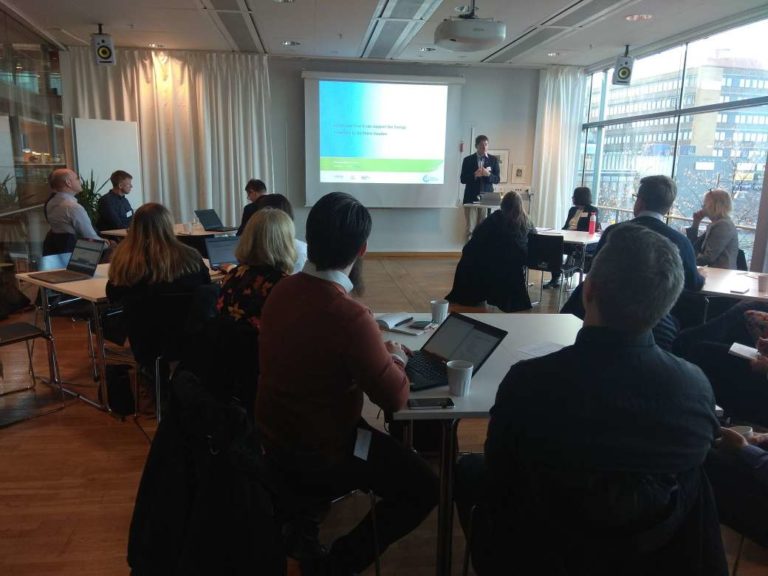Tipperary Energy Agency mentoring in PROSPECT Learning Cycle 2
The Mentor ‘Tipperary Energy Agency’ (Ireland) and Mentee ‘Energikontor Norr’ (Sweden) will participate in the 2nd Cycle of the PROSPECT Learning Programme, constituting the 4th Group for Public Buildings. The peer learning activities will be focalised on ELENA and Social Funds. +Mentors' Corner
For starters, the mentor Paul Kenny (CEO of TEA) and mentee Katarina Delsing (CEO of Energikontor Norr) got to know each other´s energy transition challenges through an online preparatory meeting encompassing Step 1 and Step 2 of the 2nd PROSPECT Learning Cycle. This online meeting focused on developing the learning agenda and decide on how best design the physical visit to meet the mentee´s needs. Katarina, is one of the different stakeholders who are tackling an array of challenges as they implement actions to achieve their sustainability goals. While the Energy Agency Energikontor Norr has a strong foundation in the energy transition, the learning from the PROSPECT program was expected to provide the agency with a number of key opportunities to scale the decarbonization of the energy system in the Norrbotten Region .
The Mentees will visit the Tipperary Energy Agency in Ireland to learn about best practices for Public Buildings
From the 28th to the 30th of October 2019 , a three-day peer-to-peer visit was organized in the city of Luleå, Sweden as part of Step 3 of the PROSPECT learning cycle. The main objective of the three-day learning sessions was to have a successful look at the different potential investments the region could put in place, either from the customer point of view or the investments one, and deepen the participants’ know-how on the project development assistance ELENA.
On the first day of the peer-to-peer knowledge exchange, the mentor Paul, tried to identify what are the market gaps in the energy transition of the Region of Norrbotten and what actions can the energy agency identify to fill those market gaps. Both, mentor and mentee tried to workshop around the latter allowing Energikontor Norr to come up with one or more new services that they think could plug the market gap for a number of specific things. The sessions provided a dynamic environment for ongoing mentor-mentee collaboration to allow for deeper and sustained engagement where other energy managers from the Energikontor Norr joined the discussions.
On the second day, a workshop with external stakeholders was organized in Luleå by Energikontor Norr aiming to address potential opportunities with ELENA financing in Sweden. The session began with a presentation of the project development assistance covering topics such as where its funding can be used and examples of completed ELENA projects. One of the main objectives of the workshop was to draw upon Paul Kenny and TEA’s own experience building up and implementing ELENA projects.

What are the main Regional Investments in the period 2021-2024 for the energy transition?
This was one of the first questions addressed to the external stakeholders to get a flavor of the scale. To answer that, two small discussion groups were set up to facilitate a smooth exchange of opinions and debate on practical issues. Each group tried to determine the area(s) that would be the most appropriate for the development of an ELENA project in the Region of Norrbotten and to make sure that investment begets investment (the leverage factor). The workshop gathered different profiles of people who together, asked questions, took the debate forward and made it possible to map out the regional investments, who will make them, what are their gaps, their resource needs and how does ELENA and the energy agency plug those resource needs to unlock the energy transition.
Overall, the stakeholder workshop immensely benefitted not only Energikontor Norr but the entire Region of Norrbotten, by learning from and being inspired by the experiences of the mentor Paul Kenny. Furthermore, it has given the participants the opportunity to deliver a step change in their region's ambition in terms of the energy transition, with really engaged stakeholders, committed to delivering a huge investment program to decrease energy use and energy related carbon emissions. Ultimately, participants of the workshop brainstormed together and discuss on ways and possibilities to cooperate with each other developing an ELENA project and address common challenges. Residential Buildings has been taken as the project case for EnergikontorNorr and the rest of stakeholders of the Region who will be busy working on how to build a business model, and decide on what can be included in the project. To enable continuous peer-based knowledge exchange, learning, and technical collaboration the EnergikontorNorr has fixed dates for the next meetings which will lead the implementation of the strategic priorities.
Paul Kenny, Tipperary Energy Agency There is a whole pile of ideas and it was great to see that. The external stakeholder meeting went really well.
Katarina Delsing, EnergikontorNorr The meetings have given more than expected. Paul has given new ideas on how to challenge our agency and the Region.
Replication/Transferability
The 4th and last Step of the Programme includes an online session dedicated to the assessment and evaluation of the peer learning activities.
The session took place on the 30th of October 2019. Detailed action plans were submitted by the mentees, in light of the new-acquired knowledge gained from the mentor. Conditions for success and key parameters that could affect negatively the plans were also identified, along with a benchmark survey that encapsulated all the outcomes of the learning group.
Rethinking the financing scheme:
Main impressions and understanding about the financing scheme:
Very good financing program. The scheme is to unlock investments
Key project implementation drivers::
It´s genuinely available. It´s not too complicated administration. It´s flexible.
Key project implementation barriers:
The budget is an impediment. It would be good if it had 2 or 3 entities beneficiaries instead of one.
Key steps to set up or develop the financing scheme:
Aggregation of investments from key stakeholders.

